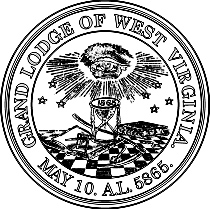 From the Charleston Gazette, it seems that a jury has sided with the Grand Lodge of West Virginia.
From the Charleston Gazette, it seems that a jury has sided with the Grand Lodge of West Virginia.
The Original story begins:
CHARLESTON, W.Va. — A Kanawha County jury sided Wednesday with the Grand Lodge of the West Virginia branch of the Masons against a former grand master who sued after he was expelled from the group, claiming the organization had violated its own rules.
The jury declined to award Frank J. Haas, an administrative law judge from Wellsburg, any damages, even though Kanawha Circuit Judge Carrie Webster ruled that the Masons breached its contract with Haas.
The jury also decided that the state’s Grand Lodge and past Grand Masters Charles F. Coleman II and Charles L. Montgomery had not defamed Haas, placed him in a false light, or committed outrageous conduct toward Haas, who was also a past grand master.
Bob Allen, Haas’ attorney, said after the verdict was announced that Haas was very disappointed, but accepted the jury’s decision.
…
Haas, who served as the state’s grand master from October 2005 to October 2006, said that during his tenure, he tried to make West Virginia Masonry more inclusive in terms of nationality, race, disability, age and religion. He said he wanted to bring the organization’s policies more in line with federal and state public policy.
Haas’ progressive agenda, which came to be known as the Wheeling Reforms, passed at the Masons’ annual communication that year in Wheeling. The vote — in which some members, according to custom, had full votes and some had quarter votes — resulted in a tie, with Haas casting the tie-breaking vote himself.
Days later, Coleman, who succeeded Haas as grand master, issued an edict setting aside Haas’ agenda, citing voting irregularities that he and others had witnessed.
You can read the full published story (Wayback Archive) here.
Additional reading
Lest We Forget.
West Virginia Court Rules That It Has The Power To Force Freemasonry To Follow Its Own Rules
Message from Haas, post trial – Masonic Crusade – Archive

This case was and still is a travesty to Masonic jurisprudence. I AM the reason that PGM Frank Haas took some of the actions he initially took during his term as GM, in that I was denied visitation based on nothing more than my race/ ethnicity. PGM Haas felt this was inappropriate, and he addressed it in the manner he could as GM of West Virginia.
I will further add that he (Frank Haas) at least made effort to address it, as my then GL’s (Texas & North Carolina) wouldn’t even write a letter of protest on the matter to GL of West Virginia over my being denied visitation on questionable grounds, as it was publicly stated why I was being denied visitation, and that I was denied based on my race & physical appearance only.
My ability to visit and/or affiliate was interfered with which raises many questions regarding my (and any other Freemasons) Masonic rights & privileges.
To this day, I AM still denied visitation to lodges in West Virginia (where I reside), eastern Ohio (across the river from my current residence) & western Pennsylvania (5 mins east of my residence). That is three masonic jurisdictions that I AM being denied the ability to visit in, without a valid reason of any kind… causes me to re-think why I remain a member.
What is amazing about all of this is that my current Grand Lodge is unable to make sense out of any of this (United Grand Lodge of England).
The jury made its decision, but was unable to hear testimony from a Freemason in good standing who was being denied. GL of West Virginia went out of its way to insure that I was NOT called as a witness to testify, and made certain that NO reference of me was brought up in court proceedings.
After the verdict, GL of West Virginia wants to claim jurisdiction over me as a Freemason without acknowledging my Masonic rights — their position is that as a Black man, I have no right to hold Masonic membership in a mainstream GL, an affront to me as an inidividual Freemason and disrespectful of my Grand Lodge(s) that GL of West Virginia is in amity with.
I continue to raise this issue for the following reason(s); 1) how does any organization hold 501(c)3 tax-exempt status when it openly violates federal & state laws? and 2) the hypocrisy of claiming jurisdiction over a Freemason without acknowledging his Masonic rights & privileges (the few that I actually have)…
Grand Lodge of West Virginia wants it’s cake and the ability to eat it as well, while making certain that I cannot enjoy my own slice.
Bro. Raymond, the answer my be that the GL of WV is not a 501C(3) but a private 501C(10) organization. In no way is a C(10) group a public accommodation.
Your premise may be correct, but even private organizations must follow state and federal laws no matter their tax status.